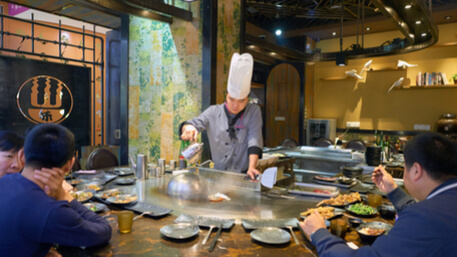26 Sep
2017
What You Should Know About Chinese Business Culture
Business By China Car Service Comments Off on What You Should Know About Chinese Business Culture
China has quickly established itself as a world leader. Which means there’s a multitude of businesses across the globe, looking to capitalize on China’s booming economy. Doing business in China is very different from most places in the world. The Chinese business culture has a number of unique traits.
It’s important to be prepared and to understand what to expect in order to avoid any potential loss of business due to misunderstandings. Being a regular business traveler to China, you probably already know many tricks of the trade. Nevertheless, refreshing your memory and keeping well-informed can go a long way. In this blog post, we’ll help you prepare to understand the Chinese business culture.
Greetings in Chinese Business Culture

Westerners typically shake hands with their business associates as a form of greeting. In China, slight nodding is the more common way of greeting. You may be offered a handshake but it’s important to wait for your Chinese counterpart to offer their hand first. Formal introductions are very important to the Chinese as it’s the first step to establishing an interpersonal relationship. Therefore, it’s important to take note of these when they are mentioned. Most people will be addressed by a title followed by their name and it’s important for you to do the same. For example, when addressing people, refer to their professional title such as ‘Director Wang’ or ‘General Manager Lee’. It’s considered rude to introduce yourself so when being introduced, stand up, smile, and make eye contact for the duration of the introductions.
Insider tip: Applause is common when greeting a crowd and reciprocation is expected.
Importance of Mianzi (Face) 面子

One key aspect of Chinese culture is the concept of Mianzi (pronounced Mi-en-ts-uh) which means ‘face’. Face can be described as a mix of public perception, social role, and self-esteem that has the potential to either destroy or help build relationships. Therefore, it’s important to never make Chinese business people ‘lose face’ by insulting, criticizing, or making fun of them in public. An entrepreneur can gain face by attending meetings, accepting invitations, giving gifts or compliments, and showing sensitivity to Chinese culture.
Insider tip: When making a toast in honor of your Chinese counterpart, make sure your glass is raised lower than theirs. This way, you maintain respect by giving them face.
The Art of Business Conversations

Small talk is particularly important at the beginning of the meeting. Popular topics about China to start with which are generally safe are landmarks, art, scenery, climate, and geography. Try to stay away from politics unless you know the person very well. Chinese business people will appreciate it if you’re able to say a few Chinese words, but this is not a necessity. Rather avoid this if you’re not comfortable or aren’t 100% sure of what the words mean. The Chinese often ask questions such as ‘Where have you been?’ and ”Have you eaten?’ which are equivalent to Westerner’s ‘How are you?. Don’t take the question literally, simply smile and say ‘yes’ or ‘thank you’.
The Chinese don’t like to say no as it causes embarrassment and loss of face. If a request can’t be met, you might be told that it’s inconvenient or ‘Yes, but it may be difficult’. Although that may seem like a positive response, it most probably means ‘no’. The Chinese also nod as an acknowledgement that you are being heard, rather than symbolizing ‘yes’ so it’s important to take note of that.
Insider tip: During a conversation, don’t criticize China or Chinese leaders. Also, avoid any references of Hong Kong, Taiwan, Tibet, or Xinjiang as separate entities from China Mainland.
Understanding The Chinese Business Mentality

Guanxi 关系 (pronounced gwan-shee) which literally means ‘relationship,’ is extremely important to the Chinese. Chinese business people also see mutual trust and respect as a vital part of the relationship. They’ll often meet up several times in order to establish that relationship before closing any deal. Therefore, the deal closing process may take time, they’ll appreciate your patience. People in China will enter the boardroom in an order of hierarchy so the delegate of the meeting will usually enter first. Wait for the appropriate time to enter the room. You’re always expected to arrive on time, or earlier, and to be well prepared for meetings. Make sure you bring several copies of all documents to your meeting. When handing out brochures or documents, make sure you start with the most senior person in the room, handing them over with both hands. Business cards are delivered in the same fashion, with both hands holding the card as you offer it to your counterpart. It’s important to remain composed at all times. Rather than showing too much enthusiasm or emotion when closing a deal, show acknowledgement with a faint smile or nod.
Insider tip: You may find that once both sides have met, Chinese businessmen may use the newly found friendship to reach concessions. For example, the Chinese side may mention to foreigners that true friends would reach an agreement that is of maximum mutual benefit. Make sure that the benefit is genuinely mutual and not just one-sided.
Body Language and Mannerisms To Look Out For

It’s important to be aware of your hands at all times. The Chinese don’t use their hands when talking as it’s considered rude and distracting. Pointing at something with your index finger is also considered rude, use an open hand instead. Chinese business culture sees people continuously acting in a very formal manner, so it’s vital to remain calm and collected at all times. Touching your mouth with your hands, biting your nails, or removing food from your teeth is also considered incredibly impolite.
Insider tip: The Chinese don’t like to be touched, particularly by strangers. However, Westerners often feel that the Chinese comfort zone (appropriate standing distance) is a bit too close for comfort. Don’t be surprised if you feel a slight invasion of your personal space.
Business Meeting Etiquette

Always dress in formal attire for meetings as a sign of respect. As a general rule, avoid bright colors as they are considered inferior. Being punctual is as important to the Chinese as to Westerners. Exchanging business cards is an honorable act in Chinese business culture. This is your formal presentation of your name and your title. Always use both of your hands when presenting your business cards. This shows respect for your counterpart. Stand before receiving a business card, if you were sitting down. Also, make sure to take a moment to look over the card you’ve just received, read it thoroughly, failing to do so may be seen as a sign of disrespect.
Once the meeting has come to an end, you’re expected to wait for your Chinese counterparts to leave first. If you’re hosting the meeting, it’s proper etiquette to send a representative to meet your guests outside the boardroom or building and to escort them to the meeting room. The host should escort the most senior member as well as VIPs to their seats.
Insider tip: It’s important to never write on a business card or put it straight into your pocket or wallet. Carry a small business card case with you instead.
Doing Business Over A Meal

If you were invited for a business meal, wait to be seated. There’s often a seating process based on hierarchy. Don’t discuss business, yet. Small talk and getting to know each other is expected before any formal business conversation. Know how much to eat (pace yourself) as you may be served as many as 20 to 30 dishes throughout the course of the evening. Be careful not to leave your plate empty either, this can be interpreted as a sign that you’re still hungry (and your host didn’t prepare enough dishes). Try not to reject anything, rather taste a bit of everything. Being invited for drinks is a good sign. This means you’re given the opportunity to build your business relationship with your associates. You might be tested on your ability to consume alcohol. When using chopsticks, never drop them, or rest them parallel to each other on top of (or in) the bowl. Preferably, place them on their chopsticks holder or rest them diagonally on the plate. Remember not to leave a tip after the meal, it may be considered rude.
Insider tip: Never eat or drink before your host. Always offer someone else food or drinks before serving yourself. Never take the last piece of anything, this is considered bad luck and shows that you are greedy.






